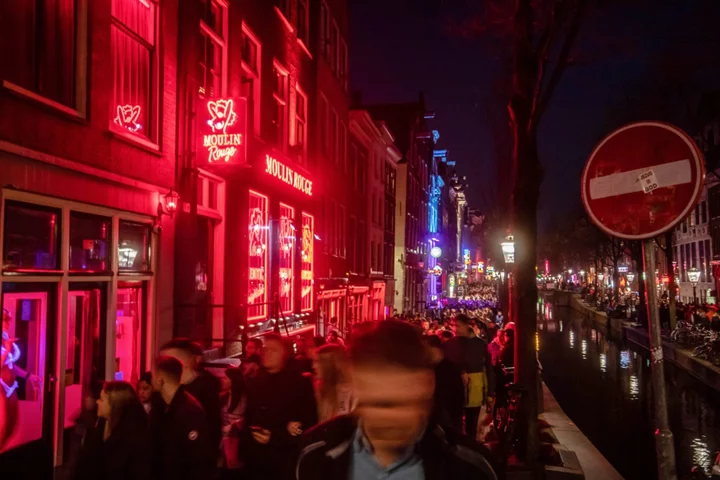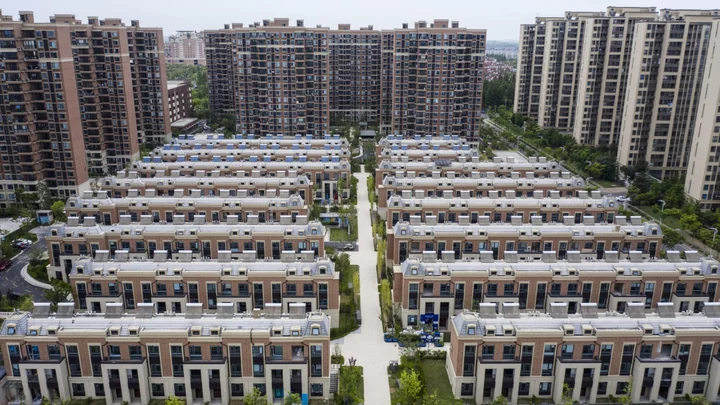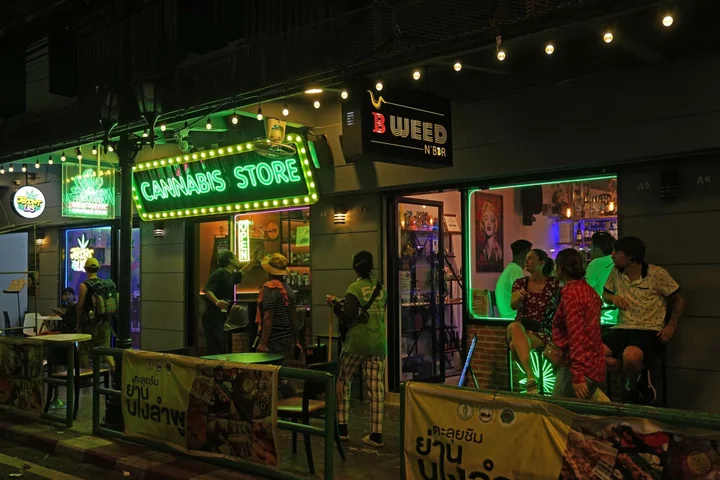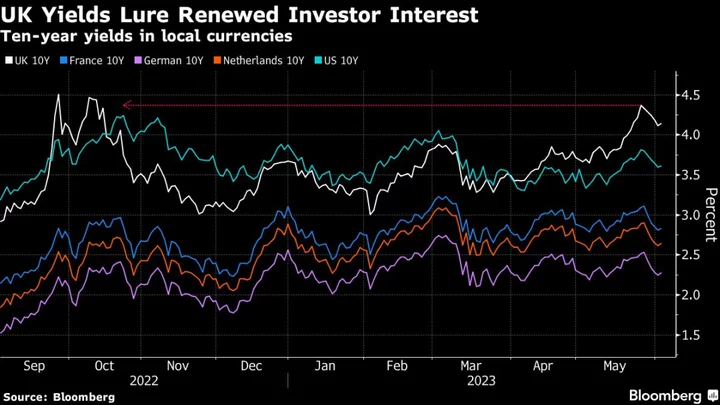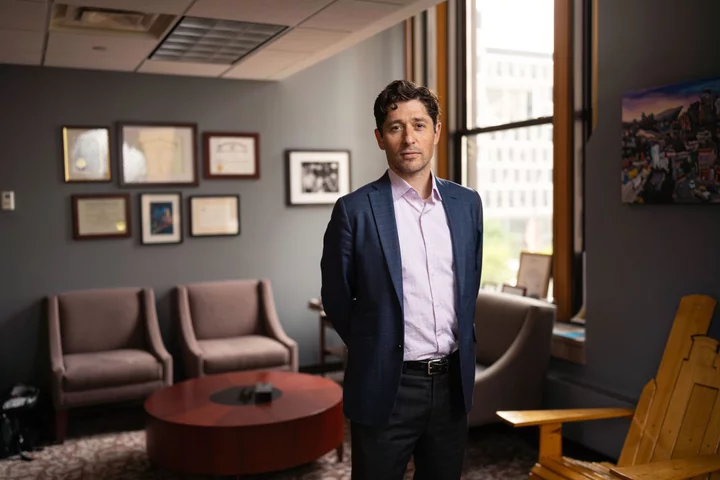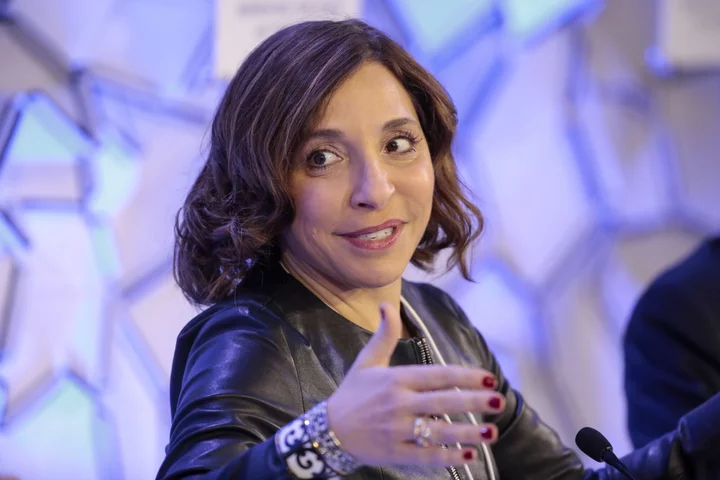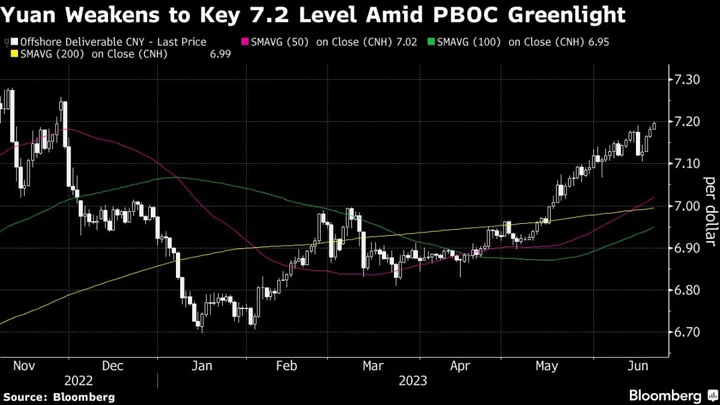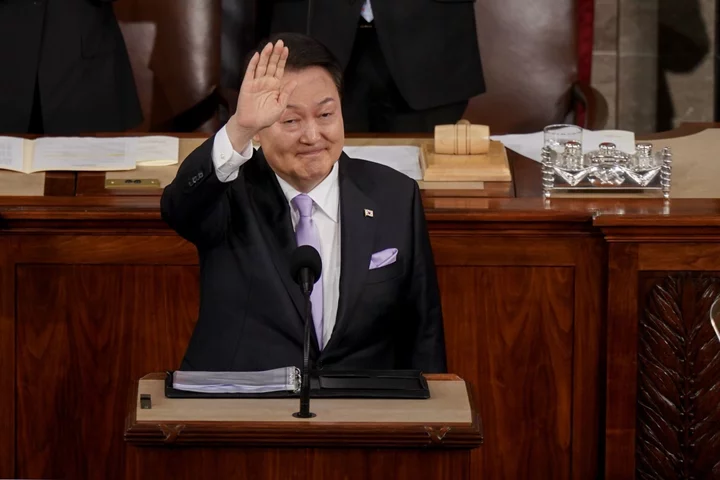For centuries the Netherlands got rich by being open to the world.
Known for its permissive attitude to sex, drugs and corporate profits, in economic terms the small, waterlogged country has punched above its weight. As an expansionist trading power it spawned the world’s first multinational corporation, and remains Europe’s biggest stock-trading hub.Now, faced with housing shortages and tensions over immigration, there’s a new consensus against unbridled growth at all costs. As voters go to the polls the candidates for Wednesday’s elections are competing to close their country off.
The outgoing government has set the others a high bar. To complement Amsterdam’s “Stay Away” campaign aimed at young British men, they’ve designed policies to deter the expats for whom the country has long been so attractive. They’re planning to cut flights, cut migration numbers and cut tax breaks for foreign workers.
And it seems to be cutting through. According to most surveys published ahead of the election, the center-right incumbents are ahead in polls. One rival has a slogan summing up this new era of modest ambition: “Not everything can be done everywhere at the same time.”
That’s not been the prevailing attitude in the European Union’s 5th largest economy, much of which is built on land reclaimed from the sea. Until a few years ago, the Netherlands’ reputation among the most business-friendly nations was intact.
Now, “the bigger the challenges,” said Sandra Phlippen, chief economist at ABN Amro, “the more we look inward.” In a country whose fragmented electoral system makes coalition governments inevitable, consensus matters, and right now it’s aligning around a recalibration of the Netherlands’ open-to-all image.
Even though she was once a refugee herself Dilan Yesilgoz-Zegerius, who’s spent much of the campaign as the first-placed candidate, has made cracking down on immigration central to her campaign for the ruling VVD, whose leadership she took over from outgoing premier Mark Rutte.
Frans Timmermans leads an alliance of the Green Left and Labor parties. He was, as the EU’s climate czar, the architect of bloc-wide environmental policies that in his home country have played out in the forced closure of farms. In the latest poll he was shown climbing to tied first place. Pieter Omtzigt, who represents a breakaway party formed just before these elections, is the architect of a plan approved by parliament last month to shrink an income-tax exemption for expat salaries. He had dropped to fourth place as of Monday night’s poll.The other candidate in the leading pack is Geert Wilders, who for many inside and outside the country is responsible for mainstreaming anti-migration sentiment. His far-right Party for Freedom had jumped into third place as of Monday night, which could help him play kingmaker after the elections. Yesilgoz-Zegerius refused to rule out partnering with him in a recent Bloomberg interview.
The mood had already begun to shift under Rutte, who plans to retire from parliament as soon as the next prime minister becomes clear. In the wake of some high-profile corporate scandals, he seized on burgeoning popular perception that the compact between business and the state wasn’t working.
Oil giant Shell PLC in 2019 confirmed media reports that it paid no corporate income tax in the Netherlands the previous year. In 2020 a Dutch newspaper revealed that travel e-commerce company Booking.com BV had received millions of euros in state support during the pandemic, while paying next-to-no tax and conducting share buy-backs worth $16 billion.
Later, even though Rutte expended a great deal of political capital trying — and failing — to scupper a popular dividend tax against which corporates balked, Shell still ended up decamping for the UK in a move that left the Dutch government “unpleasantly surprised.”
In his first decade in power, the Netherlands’ longest-serving prime minister found himself facing down critics who accused him of being all too ready to lend corporates an ear. But those critics aren’t carping so loudly any more.
During what will be the last term of his 13-year premiership, the Netherlands shut down extraction from Europe’s largest gas field, even while prices skyrocketed in the wake of the war in Ukraine. In deference to local anger about earthquakes, the closure of the Groningen field left liquefied natural gas worth a trillion dollars in the ground.
For some voters, the changes are too belated. The coalition governments of the last 20 years have managed the Netherlands “more as a corporation than as a society,” according to Maurice van Uden, who runs a headhunting firm employing 50 people. He’s switching his vote from Rutte’s soon-to-be-former party to the NSC led by Omtzigt, who made his name as a thorn in the former premier’s side.
Van Uden told Bloomberg he can’t sleep at night. The 56-year-old lies awake while planes roar over his house in Amsterdam’s leafy south. He’s one of the citizens the government is looking to appease with a plan to limit flights at Europe’s biggest transfer hub, Schiphol Airport, arguing that its location in a “highly urbanized area in one of the busiest parts of the country” meant it needed to do a better job of protecting residents’ wellbeing.The plan has put the the airport at the center of a global battle between politicians and the airlines who stand to lose business from the cuts. Yet the government isn’t just asking others to tighten their belts. It also owns a majority stake in the airport. Most rival parties are in favor of reducing flights, and some want to take measures further by raising aviation taxes.
When Rutte came across glowing charts on the Dutch economy in the international business media, he liked to proudly point them out to his colleagues, according to a person familiar with his habits.
Yet what’s centered in the campaign for Wednesday’s elections has been the detriment to living standards, with voters motivated by a growing sense that, like with the Dutch Golden-Age expansion celebrated in canvases by Rembrandt and Claesz, this economic record had a flipside.
In centuries past, the dark undercurrent to the Netherlands’ prosperity was the plunder of its colonial possessions; a legacy the state has just started to reckon with, as late last year Rutte’s government apologized for the country’s role in the slave trade.
Today’s problems include rowdy British tourists, a housing shortage and soaring rents. The Amsterdam city government has called into question the sex-work industry’s tourist-driven business model, and moved to prevent cannabis being smoked on the streets of the red light district. “We now have to choose for restriction instead of irresponsible growth,” said Amsterdam’s deputy mayor Sofyan Mbarki, who’s been working on discouraging the tourists whose average monthly arrivals outnumber the resident population.
Sure enough this year the Dutch economy has slipped into recession, as exports shrank by 0.7% in the second quarter.In the latest Ipsos poll of Dutch voter concerns, healthcare, the cost of living, and housing are voters’ top three. But much of the campaign has been dominated by the fourth: immigration.
Omtzigt has vowed to shrink net migration to a target of 50,000 annually from 200,000 last year by curbing the number of people arriving for work, asylum and study. In a country where over half of people speak two or more foreign languages, according to eurostat data, he wants to make Dutch and not English the default language at universities.
The nationwide housing shortage means universities like Eindhoven University of Technology have already had to turn foreign students away, according to its president. “It is very tempting to blame migrants for the shortage of houses. It distracts people from the failure of your own housing policy,” according to Leo Lucassen, professor of global labor and migration history at 448-year-old Leiden University.
Firms who stand to lose out are themselves sounding the alarm. Peter Wennink, chief executive of ASML Holding NV, told the Nieuwshuur TV program that knowledge migration was central to his 120-nationality firm, which ranks as Europe’s most valuable tech company.
“The Netherlands has always been an open country, which has brought us enormous prosperity, said Robert-Jan Smits, the president of Eindhoven University of Technology. The plans to deter foreign students and staff will be detrimental to the economy, he said.
ABN Amro is forecasting two scenarios after the elections; one where a progressive coalition will put the Netherlands on a “good path” to tackle difficult topics. In another scenario, a very conservative coalition could start “backpedaling” on certain issues, perhaps by withdrawing climate policies, said Phlippen, their chief economist.
“If I look at the Netherlands today, I truly think it’s one of the best countries to be in,” Ali Niknam, founder of Dutch bank Bunq BV, told Bloomberg. “Sometimes it seems as if we’re taking that for granted. We should be very careful not to lose all the great things we worked so very hard for.”
Author: April Roach, Diederik Baazil, Sarah Jacob and Cagan Koc

